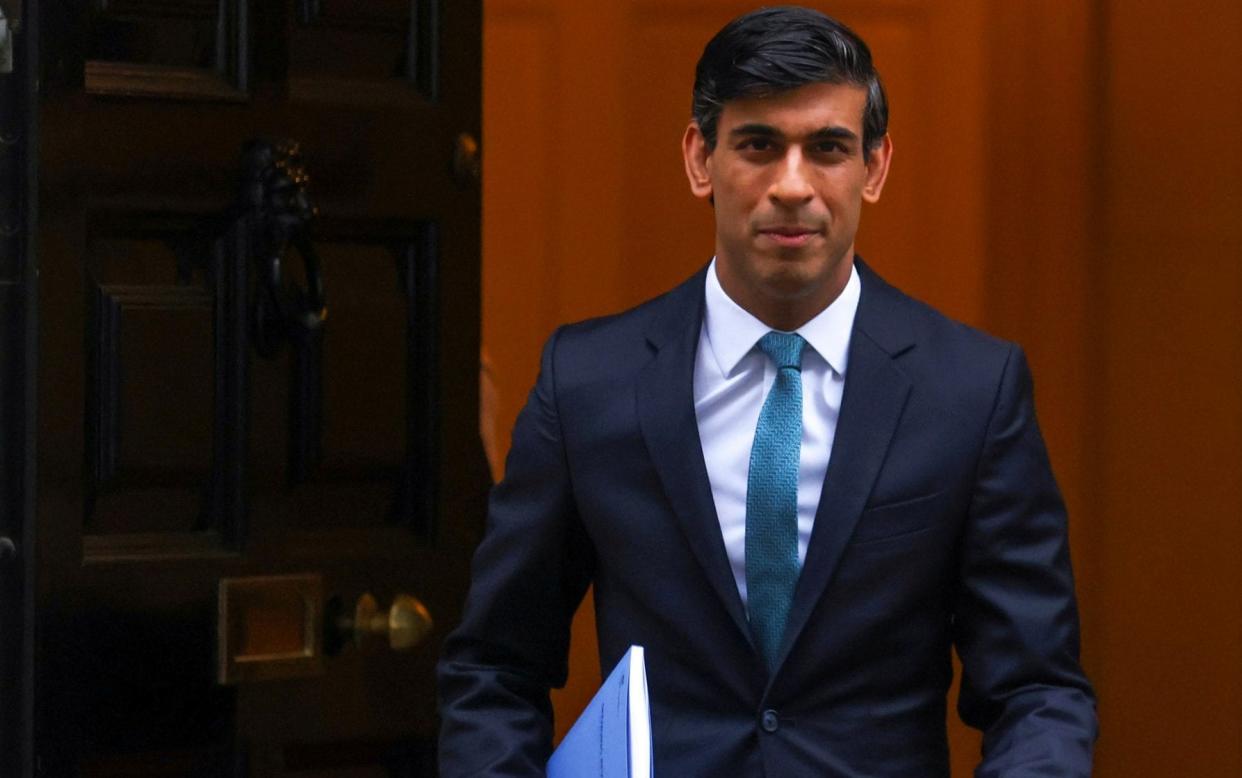Rishi Sunak warns MPs that Covid handouts 'can't go on forever'


Rishi Sunak has told Tory MPs that coronavirus handouts "can't go on forever" as he considers a second budget in the autumn to raise taxes.
The Chancellor has begun rolling the pitch for revenue-raising measures but is understood to want to wait until later in the year when the economic outlook is clearer and the recovery in train before making many key decisions about taxes.
His March 3 budget is expected to focus on job creation and stimulating the economy, with a warning that the public finances must be put on a sustainable footing in the medium term.
A Government source said Mr Sunak is "under constant pressure from Number 10 to be sympathetic on a case-by-case basis [to those financially affected by coronavirus], but the problem is those cases grow all the time".
The source added: "But he's pretty resilient and he's pretty clear about what needs to happen because he knows the fundamental problem we've got if interest rates go up. At the moment people are saying 'we want this, we want that'. They point to tomorrow when asked when we're going to pay for it."
On Friday night, Boris Johnson was asked at a Number 10 press conference whether the Government would consider extending the furlough scheme, which pays up to 80 per cent of workers' wages, beyond its current expiry date in April if restrictions remain in place.
He said: "We will do whatever it takes to support the people of this country throughout this pandemic – support jobs, support livelihoods, as we have done throughout."
Mr Sunak has been laying the groundwork for higher taxes in calls with groups of Tory MPs, warning that demands for higher spending cannot be paid for by borrowing.
One Conservative MP said: "He's talked about what the big revenue-raising levers are without committing to any – corporation tax, VAT, national insurance and fuel tax, which he's pointed out has not been raised in 10 years." However, a source close to the Chancellor denied that he had framed the discussion around major revenue-raising measures in his phone calls with MPs.
Mr Johnson pledged to freeze income tax, VAT and national insurance in the 2019 Tory election manifesto, but last October Mr Sunak said it would be "tricky" to meet the tax promises.
Not all tax rises are expected to be put off until the autumn, when there is set to be a multi-year spending review, and beyond. At present, a corporation tax hike in the March budget is under consideration, it is understood.
Mr Sunak has told Treasury colleagues he wants the rate, which stands at 19 per cent, to remain competitive with rival economies, according to the Financial Times. The average headline rate among OECD countries is 23.5 per cent, allowing room for manoeuvre to raise the UK rate while remaining beneath that.
A second Conservative MP said the Treasury has signalled that it will use the March budget to "push cash into Kickstart [the Government scheme that funds employers to create job placements for 16 to 24-year-old benefit claimants] and getting new jobs out there in the economy”.
The MP added that Mr Sunak had been "very clear in setting out the public finance challenge" and had told backbenchers "handouts can't go on forever".
A Treasury source said no decision had yet been taken on a second autumn budget yet, adding: "We're facing huge uncertainty. It's still not clear what the shape of this spring budget will be." The Treasury declined to comment on tax matters ahead of the March budget.
It came as Sir Iain Duncan Smith, the "architect" of Universal Credit, called on Mr Sunak to extend the £20 weekly uplift to the benefit as he urged permanent improvements to the system. Sir Iain, a former Conservative leader and Work and Pensions Secretary, warned that the increase must be kept while the long-term impact of coronavirus on the economy remains uncertain.
Arguing that Universal Credit is the best mechanism for tackling poverty, he pointed to research showing that raising the generosity of the benefit and the work allowance is a "much more efficient way of improving the incomes of the poorest than raising the personal income tax allowance."
He has also made the case for lowering the current taper rate – which, at 63 per cent, deducts 63p from claimant's benefits for every £1 they earn over their work allowance – and disputed suggestions that an extension would cost £6 billion a year.
There is an ongoing debate in Cabinet over whether to extend the £6 billion a year uplift to more than six million claimants, who have seen their incomes boosted by £1,000 throughout the pandemic .
Therese Coffey, the Work and Pensions Secretary, and Mr Johnson have signalled a preference for it to be extended while virus restrictions are still in place. Mr Sunak is said to have accepted the need to offer some additional support to claimants beyond the end of April, but a final decision on whether this would be via an extension to Universal Credit has yet to be made.
On Friday night, senior Conservative sources said Number 10 was ratcheting up pressure on the Chancellor to make an announcement on Universal Credit in the coming days rather than at the Budget.
New research published on Friday suggests low-paid workers are more than twice as likely to have lost their jobs during the coronavirus crisis.
The Institute for Employment Studies findings also indicate that workers in low-paid jobs are at greater risk of being temporarily laid off or having their hours cut. Around four million workers have been temporarily laid off or are working fewer hours than normal, its report estimated.

 Yahoo News
Yahoo News 
